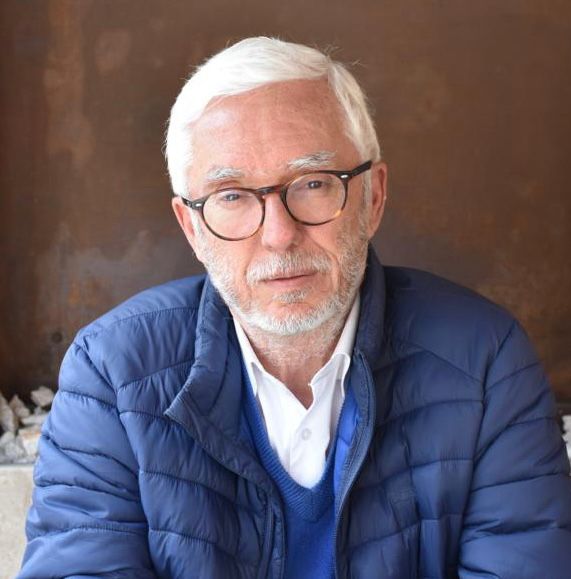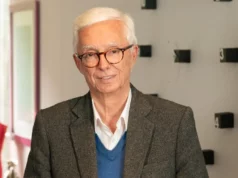Presentation at the International Seminar of Legislators and former Legislators from Latin America and the Caribbean: LET’S STOP THE WAR BEFORE IT’S TOO LATE.
Let me begin my remarks by thanking the Schiller Institute for sponsoring and organizing this seminar. I offer my warmest regards to the Latin American political leaders, congressmen and former congressmen participating in this event in support of a peace agreement between Russia and Ukraine, the United States and NATO.
I hope for an agreement that guarantees to each of the parties involved that the end of this painful war will not be at the cost of increasing the nuclear vulnerability of any of them. A kind of agreement that would bring to an end a great threat to humanity.
My Dignidad Party in Colombia rejects the Russian invasion because we stand for the self-determination of nations and the peaceful resolution of conflicts. That said, there are events in the history of the world that make it easier to understand why Russia invaded Ukraine and point a way to bring the conflict to an end.
In October 1962, the head of the United States government, John F. Kennedy, announced to the world that his country would launch a nuclear war if the Soviet Union continued to install missiles in Cuba armed with nuclear loads capable of hitting the US mainland, located just 90 miles from Cuba.
The US announcement – which stood in contradiction to the sovereignty and the right to self-determination of Soviets and Cubans – was made possible because, as a nuclear superpower, the U.S. was in a position not to tolerate for any reason threats with atomic weapons. It considered those threats unacceptable for its right to exist as a State and as a nation.
A few days later, in an act of good sense, the Soviets gave up installing nuclear missiles in Cuba, thus ending the crisis. At the same time, the United States, in another act of good sense, promised not to invade Cuba and to withdraw missiles carrying nuclear loads, targeting the Soviet Union, that it had installed in Turkey some time before.
A better understanding of what happened requires knowing one detail: that both the Soviet and US missiles – in Cuba and Turkey pointed at the United States and the Soviet Union respectively – were located at such a short distance from their targets that no defense mechanism existed to prevent a devastating nuclear attack. In both cases, the best mutual deterrence was the decision by the two nuclear powers to stop threatening each other at such close range.
Without the above information –or without similar knowledge– it is difficult to understand the primary cause of Russia’s invasion of Ukraine –with all the horrors and tragedies typical of all wars–, because what is ultimately at stake is whether the United States – through NATO, which it controls – can install missiles with nuclear loads and other very powerful weapons in Ukraine, bordering Russia, capable of hitting Moscow and western Russia, with them unable to defend against such a destructive attack.
I also question whether the United States, with the backing of some European countries, has the right to declare itself as the only military and nuclear superpower in the world, capable of subjugating all countries -including China- in order to impose its preferred economic and political relations: which is to say, according to the needs and dictates of US transnationals and being the worst globalization imaginable.
The above ‘law of a global funnel’ has another generally unspoken attribute: the open and systematic manipulation in much of the world of information regarding the war in Ukraine. This makes it nearly impossible to find in the major media in most countries alternative analyses like I presented above.
That is why it largely forgotten that Mikhail Gorbachev’s decision to break up the Soviet Union was accompanied by prior agreements with the United States and NATO to the effect that their armies, with their powerful conventional and nuclear weapons, would not be placed near the Russian border. According to the agreements, countries that previously revolved around the Soviet orbit would not be integrated into NATO.
Those accords were made in order not to elevate threats to Russia’s economic and political interests, its national sovereignty, its self-determination as a nation, and its very existence. But despite pacts and assurances, exactly the opposite happened. With the disintegration of the Soviet Union, its zone of political and military influence in Eastern Europe withered. The Soviet-led Warsaw Pact, NATO’s military counterpart in Europe, was dissolved. NATO, an organization created during the Cold War was also supposed to dissolve because it was a part of the Cold War.
Yet the United States and NATO, instead of fulfilling their commitments to Russia, took advantage of the circumstances, expanded to the East, and brought several of the countries previously in the Soviet orbit into NATO. This brought NATO closer, and more threatening to Russia. Eventually the United States and NATO began preparations for the entry of Ukraine into its ranks. Ukraine of course is a country located on the very Russian border, led by strong and openly anti-Russian political forces. Ukraine has advocated for joining NATO, which would bring the conventional and nuclear weapons of the US-led alliance right next to Russia. Neither the United States nor NATO itself have ruled out the admission of Ukraine.
The facts presented in this brief summary explain why a United States leader of such experience in international relations as Henry Kissinger, one of the most important former Secretaries of State of that country, wrote in 2014: “Ukraine should not join NATO, a position I took seven years ago – then 15 years ago today – when this issue came up the last time.” In an article in he also recognized the Ukraine’s “right – the right that nobody has never questioned – to freely choose its political and economic associations, including those with Europe” (Washington Post, 03.05.2014, see link).
A very concerned Pope Francis has notably clamored, on behalf of millions of human beings, for the sides to find a peaceful solution to this war that entails so many grave risks.
You may or may not agree with my analysis of the situation. But what can’t be denied are the facts presented. The analysis seeks to ensure that this war does not turn into a confrontation with unpredictable consequences, a terrifying potential massacre and great material damage in Europe, with extremely painful consequences for everyone.
I end these words by urging Russia, Ukraine, the United States and NATO to reach an agreement that, above all, will ensure that each of the parties gives up increasing its options to use powerful, including nuclear weapons, against the other. This is a minimum request. We hope it will inspire many citizens of all countries to express the same wish
Those around the world that support democratic ideals have every right to demand that nothing and no one leads us to an extremely destructive or nuclear war.
We call for this democratic demand for peace to be raised all around the world.
Thank you very much.
Bogota, October 7, 2022.





